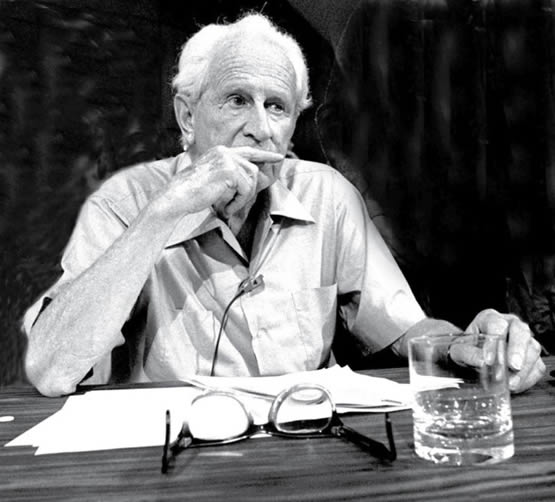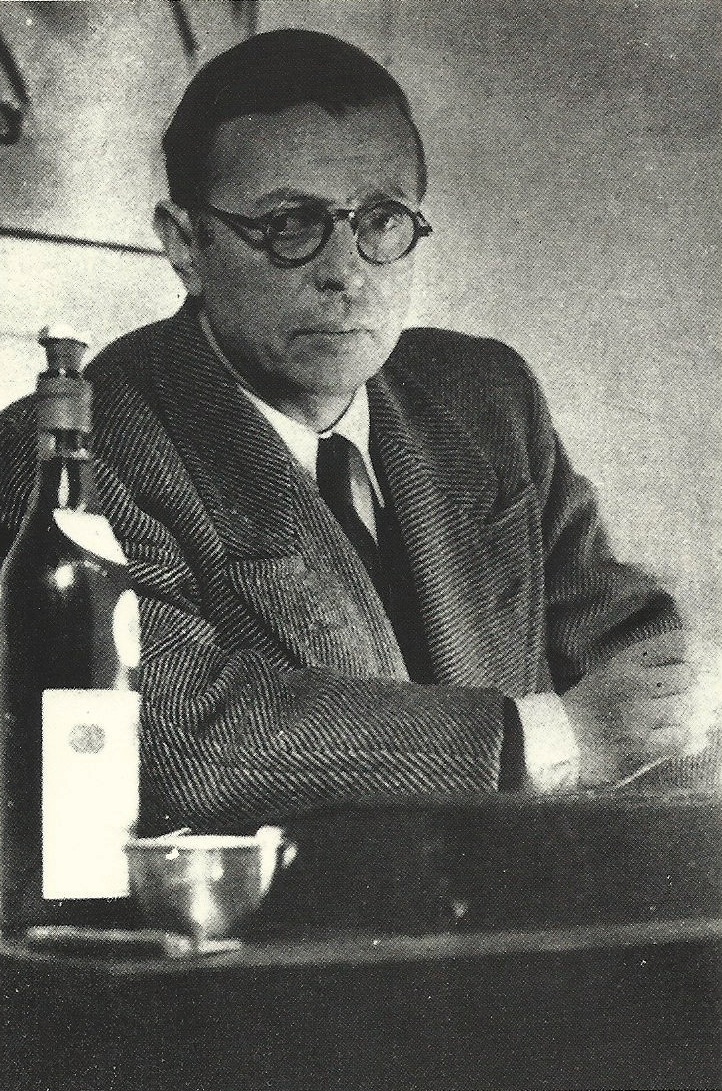Herbert Marcuse and the Frankfurt School. 1978

In this rare televised broadcast from February 2, 1978, the philosopher and political theorist Herbert Marcuse explains how the Frankfurt School re-evaluated Marxism when world economic crisis failed to destroy capitalism as predicted by Marx. He also analyses the philosophical roots of the student rebellions of the sixties. Its intruiging to see Marcuse explain his philosophical and political positioning. (Split into five parts. Language is English.)






 We need more teachers like you :)
We need more teachers like you :) I discover TL of a writer and respected intellectual, with a tolerant, global conscience: @GhoshAmitav – tx @Milindo_Taid
I discover TL of a writer and respected intellectual, with a tolerant, global conscience: @GhoshAmitav – tx @Milindo_Taid OMG its like a painting!! you have taken photography to another level!!!
OMG its like a painting!! you have taken photography to another level!!! Guitar in your hand reminds me of the MCRC days! You are terrific… :)
Guitar in your hand reminds me of the MCRC days! You are terrific… :) Utterly Brilliant! I just thought you should know that you have engaged another human with your work here, and for that I thank you!
Utterly Brilliant! I just thought you should know that you have engaged another human with your work here, and for that I thank you! Photo Gallery
Photo Gallery Photo Gallery
Photo Gallery Just detected your blog: impressive. wishing you continued inspiration and health.
Just detected your blog: impressive. wishing you continued inspiration and health. Photo gallery
Photo gallery So glad you enjoyed my photos, really honored to be featured on your blog. thank you sir!
So glad you enjoyed my photos, really honored to be featured on your blog. thank you sir! great blog :)
great blog :) Photo gallery
Photo gallery Your courses were always the best. By the way, just went through a bit of your website. It’s great! Some good stuff in there that I wouldn’t normally chance upon
Your courses were always the best. By the way, just went through a bit of your website. It’s great! Some good stuff in there that I wouldn’t normally chance upon i really like your blog – good interesting stuff as always !
i really like your blog – good interesting stuff as always ! Photo gallery
Photo gallery Grt milindo. eachtime want to check out something good on net…know where to go now!
Grt milindo. eachtime want to check out something good on net…know where to go now! Photo gallery
Photo gallery Absolutely amazing blog – a chest full of treasure.
Absolutely amazing blog – a chest full of treasure. Love your site Milindo. I was excited to see you displaying my husband’s watermelon carvings
Love your site Milindo. I was excited to see you displaying my husband’s watermelon carvings Photo gallery
Photo gallery Never thought I’d say this, but it was the most interesting classes I’ve sat in.. and of course, the day you played Sultans of Swing for us. Hope you continue to influence the next generations with your dynamic yet simple teachings.
Never thought I’d say this, but it was the most interesting classes I’ve sat in.. and of course, the day you played Sultans of Swing for us. Hope you continue to influence the next generations with your dynamic yet simple teachings. #NowFollowing @Milindo_Taid One of the most influential n interesting mentor from my design school. Always loaded. :)
#NowFollowing @Milindo_Taid One of the most influential n interesting mentor from my design school. Always loaded. :) Photo gallery
Photo gallery Photo gallery
Photo gallery Photo gallery
Photo gallery Photo gallery
Photo gallery Hi Milindo, hope you are inspiring many more around you…wherever you are!
Hi Milindo, hope you are inspiring many more around you…wherever you are! Photo gallery
Photo gallery hope you’re changing the world as always :)
hope you’re changing the world as always :) veryveryinterestingwebsite.have been visiting! thankyou!
veryveryinterestingwebsite.have been visiting! thankyou! Photo gallery
Photo gallery Photo gallery
Photo gallery Milind never told u but u were my first true inspiration….I almost learnt the guitar watching u play…..thanx for being there
Milind never told u but u were my first true inspiration….I almost learnt the guitar watching u play…..thanx for being there Your website is full of delightful posts. I’m going to have to watch where my time goes when I’m visiting! :)
Your website is full of delightful posts. I’m going to have to watch where my time goes when I’m visiting! :) Photo gallery
Photo gallery Oldest operating bookstore
Oldest operating bookstore You are awesome :)
You are awesome :) With all the magical places you are checking off your bucket list! I want to know how to be you :)
With all the magical places you are checking off your bucket list! I want to know how to be you :) You’re a role model sir, such awesomeness !!! :D
You’re a role model sir, such awesomeness !!! :D Milindo Taid – ace teacher, rockstar guide to my projects at film school, guitarist and photographer too. Really good human being as well
Milindo Taid – ace teacher, rockstar guide to my projects at film school, guitarist and photographer too. Really good human being as well Photo gallery
Photo gallery You are the only faculty member I could connect to!
You are the only faculty member I could connect to! I was just looking at your website… amazing it is… full of knowledge as always..
I was just looking at your website… amazing it is… full of knowledge as always.. Photo gallery
Photo gallery You’ll love this site by the awesome Milindo Taid
You’ll love this site by the awesome Milindo Taid Photo gallery
Photo gallery love ur pics…they are like those moments which u capture in your mind and wished u had a camera right at that moment to capture it…but u actually do capture them :) beautiful…!!!
love ur pics…they are like those moments which u capture in your mind and wished u had a camera right at that moment to capture it…but u actually do capture them :) beautiful…!!! Photo gallery
Photo gallery Still a fan of your unique and sweet finger strum on acoustic guitar. It made an ordinary guitar sound great. Would just love to see and hear one of those too.
Still a fan of your unique and sweet finger strum on acoustic guitar. It made an ordinary guitar sound great. Would just love to see and hear one of those too. Its really good to see you Milindo, with such awesome stuff from you as usual.. loved your blog as well!
Its really good to see you Milindo, with such awesome stuff from you as usual.. loved your blog as well! Photo Gallery
Photo Gallery You are inimitable!
You are inimitable! This is by far amongst the best curated creative content sites out there and the eye and vision of one man, when good, works better than any funded team. Inspired enormously once again :)
This is by far amongst the best curated creative content sites out there and the eye and vision of one man, when good, works better than any funded team. Inspired enormously once again :)